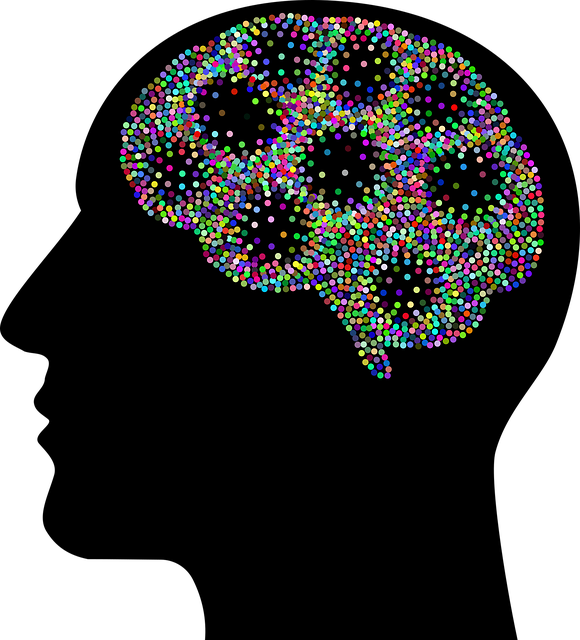Therapy for Children with Spiritual-Religious Issues: A Holistic Approach
Children's mental health treatment necessitates a tailored, nuanced approach that respects their spiritual and religious beliefs as integral parts of their development. By integrating these aspects into therapy, therapists create safe spaces catering to children's unique needs in managing anxiety, regulating emotions, and building confidence. This holistic method ensures no part of a child's identity is overlooked, fostering effective therapeutic outcomes aligned with their personal faith. For coaches, this means designing programs with age-appropriate strategies like play and art therapy, aligning guidance with clients' beliefs, and offering tools that integrate faith and mental wellness. The Mental Wellness Podcast Series and Journaling Exercises further empower individuals to reflect and progress. This revolutionary approach combines traditional therapy with understanding of diverse faith systems, fostering resilience in youth while respecting their spiritual identities.
In today’s fast-paced world, mental wellness coaching programs for children are more crucial than ever. This article delves into understanding the unique challenges of children’s mental health and their spiritual-religious needs. We explore effective strategies for designing coaching programs that address these issues, integrating therapeutic techniques to foster resilience in young minds. By combining evidence-based practices with spiritual support, we aim to enhance overall well-being, ensuring children thrive both mentally and spiritually. Discover how therapy for children with spiritual-religious concerns can be a game-changer.
- Understanding Children's Mental Health and Spiritual-Religious Needs
- Designing Effective Coaching Programs for Addressing These Issues
- Integrating Therapy Techniques and Fostering Resilience in Young Minds
Understanding Children's Mental Health and Spiritual-Religious Needs

Children’s mental health is a complex landscape that requires tailored approaches to navigate. As young minds develop, they face unique challenges and experiences that can impact their emotional well-being. Incorporating spiritual and religious beliefs into therapy for children offers a holistic approach to addressing these concerns. Many children find solace and meaning through their faith, which can be a powerful tool in managing mental health issues.
Coaching programs designed for this demographic should acknowledge the importance of spiritual-religious needs, especially when dealing with anxiety relief, emotional regulation, and confidence boosting. By integrating these aspects, therapists can create a supportive environment that resonates with children, encouraging them to explore and express their feelings while aligning with their personal beliefs. This inclusive practice ensures that no aspect of a child’s identity is left unaddressed, fostering a more comprehensive and effective therapeutic experience.
Designing Effective Coaching Programs for Addressing These Issues

Designing effective coaching programs to address mental wellness involves tailoring strategies to specific populations and their unique challenges. For children, integrating therapy techniques that cater to their developmental stage is crucial. This may include play therapy, art therapy, or age-appropriate communication exercises aimed at fostering emotional expression. By incorporating these methods, coaches can create a safe space for young clients to explore and manage their mental health issues.
When dealing with spiritual or religious concerns, a nuanced approach is essential. Coaches should be mindful of the client’s beliefs and offer guidance that aligns with their values. This might involve exploring mindfulness practices rooted in specific religious traditions or providing tools for integrating faith and mental wellness. The Mental Wellness Podcast Series Production can further enhance this process by offering diverse perspectives and expert insights, ensuring a comprehensive understanding of these sensitive issues. Additionally, incorporating activities like Mental Wellness Journaling Exercise Guidance can empower individuals to reflect on their experiences and track their progress throughout the coaching journey.
Integrating Therapy Techniques and Fostering Resilience in Young Minds

In the realm of mental wellness coaching for young minds, integrating therapeutic techniques that address spiritual-religious issues is a game-changer. Many children grapple with emotional challenges rooted in their spiritual or religious beliefs, and therapists who can navigate these complexities offer invaluable support. By combining traditional therapy methods with a nuanced understanding of faith and belief systems, coaches can foster resilience and emotional regulation in vulnerable youth. This holistic approach allows young individuals to explore and process their feelings while maintaining the integrity of their spiritual identities.
Developing inner strength is a cornerstone of this integrated strategy. Mental wellness coaches play a pivotal role in helping children cultivate coping mechanisms and risk management skills. Through tailored activities and guidance, they empower young minds to navigate life’s challenges with resilience. By teaching emotional regulation techniques alongside fostering an understanding of personal values and beliefs, these programs enable children to build inner strength, making them better equipped to handle stress, anxiety, and potential trauma-related issues, while also respecting their spiritual or religious perspectives.
Mental wellness coaching programs focused on children’s spiritual-religious needs and mental health are a game-changer. By integrating effective coaching techniques and therapeutic practices, we can foster resilience in young minds, enabling them to navigate life’s challenges with greater ease. Understanding the unique aspects of children’s mental health and tailoring interventions accordingly is crucial. Through this holistic approach, we empower children to thrive, ensuring their emotional well-being is supported both within and without the confines of traditional therapy settings.










